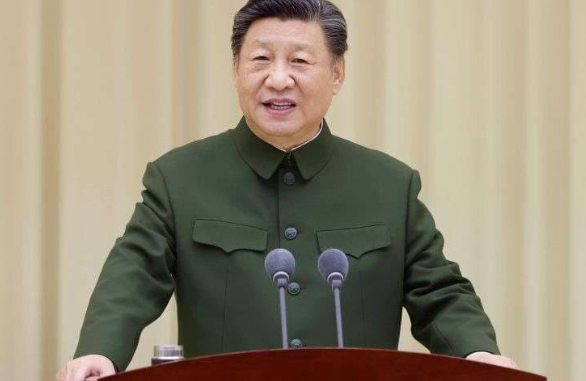
The House Select Committee on the Chinese Communist Party (CCP) released findings from its probe of five firms that supported Beijing’s military, enabled human rights abuses and boosted China’s semiconductor sector, Chairman Mike Gallagher (R-Wis.) and Ranking Member Raja Krishnamoorthi (D-Ill.) said.
The investments by GGV Capital, GSR Ventures, Qualcomm Ventures, Sequoia Capital China and Walden International totaled more than $1.9 billion in Chinese artificial intelligence companies and $1 billion in more than 150 semiconductor firms.
{snip}
“The Committee’s findings suggest that there are billions of dollars beyond those captured in this report that have flowed into PRC companies that support the PRC’s military, digital authoritarianism, and efforts to develop technological supremacy and undermine American technological leadership,” Gallagher and Krishnamoorthi wrote in the 66-page report.
“The status quo is untenable,” they added. “Decades of investment—including funding, knowledge transfer, and other intangible benefits—from U.S. VCs have helped build and strengthen the PRC’s priority sectors.”
The committee’s report was released one day after The Post exclusively revealed separate findings by San-Francisco-based nonprofit Future Union naming the top venture capitalists investing in Chinese tech startups, including at least 14 individuals from the investment firms identified by the committee.
“[They were] funding the rise of China’s innovation ecosystem for a decade, and making a lot of money doing it,” Future Union founder Andrew King told The Post this week. “Those investors laid the very foundation for our foes’ innovation ecosystem and the technologies against which US companies and democracy now competes.”
{snip}
“They deserve an inordinate amount of credit for their investigative work yielding insights that no one else could have achieved,” King said of the lawmakers Thursday.
With the new information, the venture capitalist and former venture capital attorney said he is optimistic that the Committee’s revelation will be “the detail that many policy makers needed to push their reluctant colleagues for greater action in this decisive moment.”
“What this report shows is the degree to which these firms were willing to go, and their willingness to undermine the free markets solely to enrich their funds,” he said. “The insights they unearthed indicate these firms are pariahs on critical technologies, preying on their access to the free markets and selling out and exploiting America to enrich US and Chinese Institutional Investor limited partners.”
Both Gallagher and Krishnamoorthi on Thursday called for the US to restrict investments in Chinese entities already sanctioned or flagged by the federal government for having ties to the People’s Liberation Army, forced labor camps or genocide.
{snip}
Banning certain US investments in China would not only stop the money flowing, but also limit key intangible perks venture capitalists bring along with their investments – perks those in the industry say can be just as valuable, if not more so, as the cash itself.
Those perks include mentoring, advice, industry knowledge and technology transfers to companies in which they invest to help bring about the greatest returns for themselves and their clients, King said.
Of the $3 billion in troubling investments the committee identified, roughly one-third of the venture firms’ investments went to ByteDance, the parent company of the social media platform TikTok, which is under investigation by the Justice Department for allegedly spying on American citizens.
The report also notes that more than $130 million from US venture firms went toward Chinese AI companies that have been blacklisted by the federal government.
Those companies have created AI programs for autonomous Chinese weapons systems, collected genetic data from US citizens and created facial recognition technology that is used in Xinjiang against Uyghurs.
On Oct. 16, 2022, Chinese President Xi Jinping delivered a speech pledging to “resolutely win the battle of key and core technologies” by building a “great wall of steel” that would allow his nation to be a world leader in science and technology innovations.
Gallagher and Krishnamoorthi said in a summary of their findings that Americans are unaware their “retirement accounts are invested in these five venture capital firms,” which “are contributing part of their hard-earned paycheck to it furthering the Chinese Communist Party’s authoritarian ambitions.”
{snip}
“Without these critical US investments, would the CCP have been able to build world-class semiconductor and AI sectors in China?”
“Obviously we don’t want venture capital dollars going to the Chinese Communist Party’s investments in military equipment or advanced AI that can impact the military,” Rep. Ro Khanna (D-Calif.), a member of the committee whose district sits in Silicon Valley, told The Post, adding that at least one of the firms involved had already cut off ties to its Chinese counterpart and formed a distinct US branch.
* Original Article:
https://nypost.com/2024/02/08/news/top-us-firms-that-invested-3b-in-chinese-military-tech-revealed-by-house-panel-investigation/amp/


